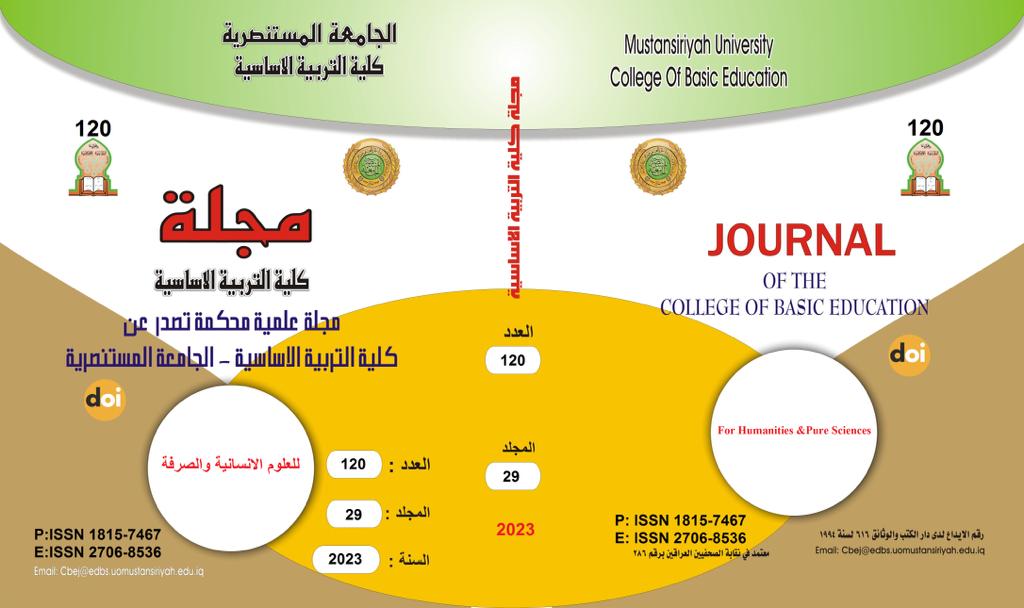The extent of science teachers’ awareness of the theory of multiple skills and its relationship to their students’ deductive thinking
Main Article Content
Abstract
The current research seeks to identify the extent of science teachers’ awareness of the theory of multiple skills and its relationship to students’ deductive thinking. In order to achieve the goal of the current research, the researcher followed the descriptive, correlational approach. The current research population was limited to teachers and students of the fifth grade of primary school in the Second Karkh Education Directorate. As for the sample of the current research It was limited to (114) male and female teachers and (2005) male and female students from the fifth grade. The researcher prepared the tools of the current research (multiple skills questionnaire, deductive thinking scale) and extracted a set of psychometric properties for it, including validity and reliability, and after ensuring that These psychometric properties and the application of research tools to the study sample reached the following results:
1) The level of teachers’ awareness of multiple skills theory is higher than average.
2) The differences in the average of deductive thinking in the dimensions of analyzing data, constructing positions, issuing judgments, and making conclusions, and the hypothetical average is significant, meaning that analyzing data, constructing positions, issuing judgments, and making conclusions are higher than the average.
Article Details

This work is licensed under a Creative Commons Attribution-ShareAlike 4.0 International License.
